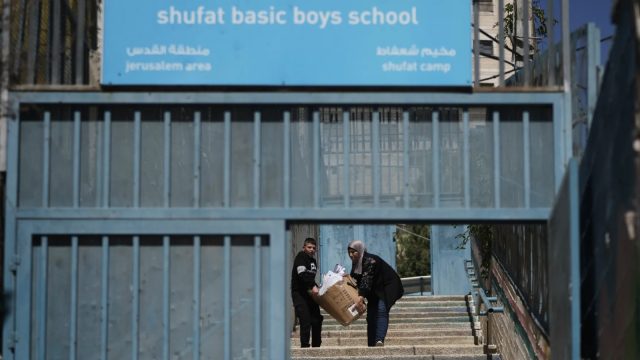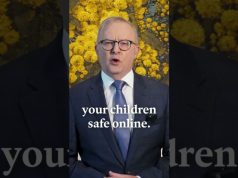UNITED NATIONS, Thursday, May 08, 2025 (WNP): The United Nations Relief and Works Agency for Palestine Refugees (UNRWA) has strongly condemned the forced entry of Israeli security forces into three of its schools in occupied East Jerusalem, describing the incidents as a severe violation of children’s rights and international law.
The agency reported that heavily armed Israeli personnel stormed the schools in Shu’fat refugee camp on Thursday during active class hours, disrupting lessons and forcing more than 550 Palestinian students — some as young as six — out of their classrooms. One UNRWA staff member was reportedly detained, prompting the evacuation of all UNRWA-run schools in East Jerusalem as a safety precaution.
“This is not just an attack on education; it’s an attack on children,” said UNRWA Commissioner-General Philippe Lazzarini in a sharply worded statement. “Storming schools and shutting them down displays a blatant disregard for international legal norms.”
Lazzarini further accused Israeli authorities of enforcing unlawful closure orders issued against UNRWA schools in April, thereby obstructing Palestinian children’s fundamental right to education. “UNRWA schools are protected UN premises. These learning spaces must remain open to ensure the well-being and future of an entire generation,” he emphasized.
Roland Friedrich, UNRWA’s Director for the West Bank, echoed the alarm, warning that refugee children now face an “immediate risk” of being cut off from their education. “Today’s actions by Israeli forces violate Israel’s obligations as a UN Member State,” he posted on social media, urging the international community to protect UNRWA’s mandate and humanitarian access.
Gaza’s deepening humanitarian crisis
While tensions escalate in East Jerusalem, the humanitarian crisis in Gaza continues to worsen under Israel’s prolonged aid blockade, now entering its tenth week.
A recent survey conducted by humanitarian organizations in April revealed that over 90% of households in Gaza are facing acute water shortages. Many families are being forced to choose between basic hygiene and preparing food. With public water infrastructure decimated, residents are increasingly relying on costly private vendors for drinking water.
The situation is exacerbated by critical fuel shortages and a lack of spare parts needed for infrastructure repairs. The southern Gaza desalination plant remains offline due to damaged power lines, and several key water pipelines have yet to be restored.
The UN Office for the Coordination of Humanitarian Affairs (OCHA) also reported alarming sanitation conditions across the Gaza Strip. In places like Jabalia and Nazla, families face a shortage of functioning latrines, soap, and clean water, with raw sewage overflowing into communities. Overcrowded shelters are now grappling with rodent and insect infestations, significantly raising the risk of disease outbreaks amid an already overwhelmed healthcare system.
OCHA warned of a “looming public health catastrophe” unless urgent international intervention is mobilized to address the crisis.
As tensions deepen and humanitarian conditions deteriorate, international pressure is mounting on Israel to uphold its obligations under international humanitarian law and allow unfettered humanitarian access to both East Jerusalem and Gaza.




